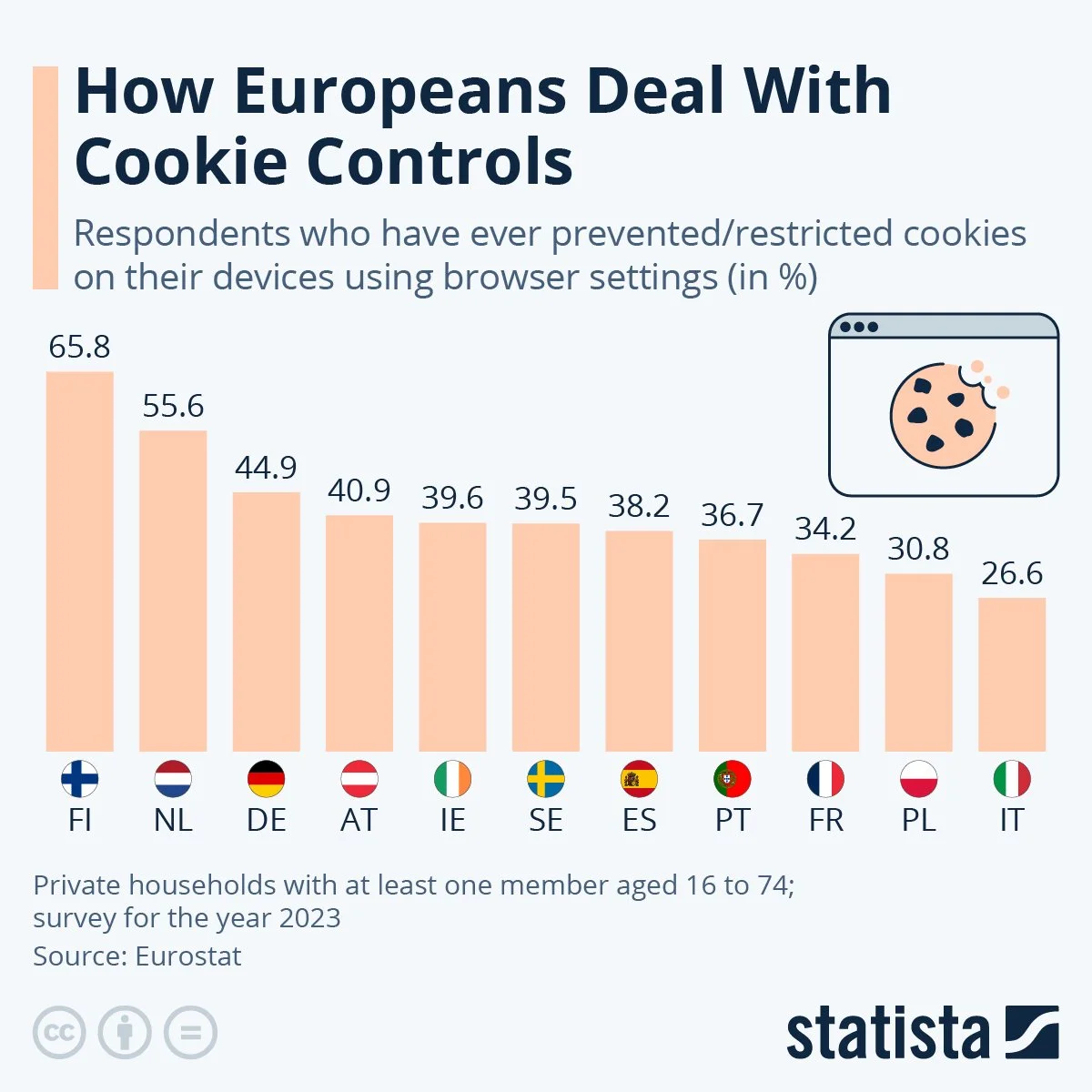Cookie-Less Future in 2024: Google Says Goodbye to Third-Party Cookies
As we bid goodbye to 2023, it’s also time to say goodbye to cookies.
In a blog, Google wrote, “To facilitate testing, Chrome has restricted third-party cookies by default for 1% of users. During this testing period, it is important for sites and services to start preparing for third-party cookie restrictions, including moving to more private alternatives. Subject to addressing any remaining competition concerns of the UK's Competition and Markets Authority, Chrome will ramp up third-party cookie restrictions to 100% of users from Q3 2024.”
This decision marks the culmination of Google’s Privacy Sandbox Initiative, a multi-year project dedicated to enhancing user privacy within their web browser ecosystem. Announced in August 2019, the initiative aimed to address the growing concerns among consumers regarding their online data and its utilisation.
The move reflects a broader shift in the digital landscape, as individuals become increasingly aware of and protective of their personal information. As such, Google’s phase-out of third-party cookies represents a significant step towards a more privacy-focused internet experience.
Credit: Searchable Design
Why Is There A Need To Go Cookie-Less?
Data privacy has become a major concern for both consumers and businesses. A recent US survey by KPMG found that 86% of American adults are increasingly worried about their data privacy, and 68% are specifically concerned about the amount of information businesses collect.
This growing public anxiety is prompting action. Governments and companies are recognising the need for change. In 2018, California passed the CDPA and the EU implemented the GDPR, regulations requiring user consent for cookie tracking. Major browsers like Firefox and Safari have already ended support for third-party cookies, and Google plans to follow suit by 2024.
However, this shift is causing unease among marketers, analysts, and developers. These stakeholders rely on data collection for their work, and the new restrictions raise concerns about their ability to operate effectively.
Google Chrome dominates the web, holding a staggering 64% market share. This makes cookies, which power hundreds of valuable partnerships, an essential tool for many businesses. Familiar examples include pixel tracking, personalized experiences, and targeted advertising through partnerships with giants like Meta and Google. Losing access to this data and seamless integrations could be crippling.
However, Google is innovating to address these concerns. On July 20th, they announced the Privacy Sandbox Initiative, a landmark effort to provide alternative solutions for businesses and users. This includes planned API releases to help websites transition away from third-party cookies and fingerprinting. Google aims to begin limited rollouts in Q1 2024 and achieve full implementation by Q3.
While this phaseout may seem daunting, it presents a unique opportunity. Companies can prioritise user privacy while also collecting more accurate, secure, and insightful data than ever before. We'll clarify your top concerns and offer suggestions to help you revamp your data strategy and stay ahead of the curve.
Credit: Statista
What To Expect From The Cookie-Less Future?
As the cookie-less future becomes a reality, here’s how things will change: Websites won’t track cookies outside their domain. Browsing data won’t be shared across different websites.
This significantly impacts ad targeting, cross-site tracking, and search retargeting.
For Marketers:
Ad targeting: Ads may be less relevant without third-party cookie data. Consider new targeting methods.
Partnerships: Collaborate with publishers and data providers for relevant user data.
Content personalisation: User recommendations may become less tailored. Explore non-cookie personalisation options.
For Publishers:
Monetisation: Ad revenue may decline. Explore alternative revenue streams based on first-party data.
Data ownership and privacy: Implement clear consent mechanisms and transparent data practices.
For Developers:
Opt-in and transparency: Focus on building user trust with clear data collection and control options.
Digital transformation: Prioritise first-party data collection and invest in new technologies for identity management, audience segmentation, and targeting.
For Everyone:
Regulation compliance: Ensure your practices comply with evolving privacy laws.
Enhanced user privacy: Users will have more control over their online data.
Ad tech revolution: Expect new privacy-friendly advertising methods and technological advancements.
Credit: Easy Insights
Preparing For The Cookie Phaseout
Here are the steps you must take as Google phases out third-party cookies:
1. Migrate to server-side solutions:
Collaborate with your developers to shift from client-side tagging (e.g., pixel tracking) that relies heavily on cookies.
Implement server-side solutions like GTAG.JS, Tealium Eventstream, or Adobe Event-Forwarding to collect and process data without cookies.
This is an initial step towards using APIs and server calls for future data strategies.
2. Explore Google's new API solutions:
Familiarise yourself with Google’s Privacy Sandbox APIs like Topics.
Topics, for example, categorises users into anonymised groups without collecting individual data, allowing you to target segments based on common interests.
Other APIs like Attribution Reporting and FLEDGE offer additional capabilities for cookieless data analysis.
3. Leverage third-party vendor APIs:
Check if your existing data partners offer compatible cookie-free APIs.
With a server-side setup, you can collaborate with them to implement solutions for tracking, targeting, and other use cases without relying on cookies.
4. Develop alternative targeting strategies:
Explore options like building first-party data audiences, using predictive AI models, or contextual targeting.
Partner with your data providers for existing segments or cohorts.
Shifting towards first-party data, collected directly from your users, will become crucial for future advertising and personalisation.
Remember, Google is not the only tech giant in the data privacy landscape. Apple has also made significant moves towards stricter data governance. Stay informed about evolving regulations and industry trends to adapt your data strategies proactively.
For more such in-depth insights, follow Comms8 where we help your brand expand into foreign markets.
At Comms8, we specialise in helping businesses leverage the power of cross-border marketing in Asia. With our expertise, we can assist you in harnessing the influence of marketing strategies to boost your brand’s credibility and awareness. Contact us today to learn more about empowering your brand in the dynamic Asian market.



